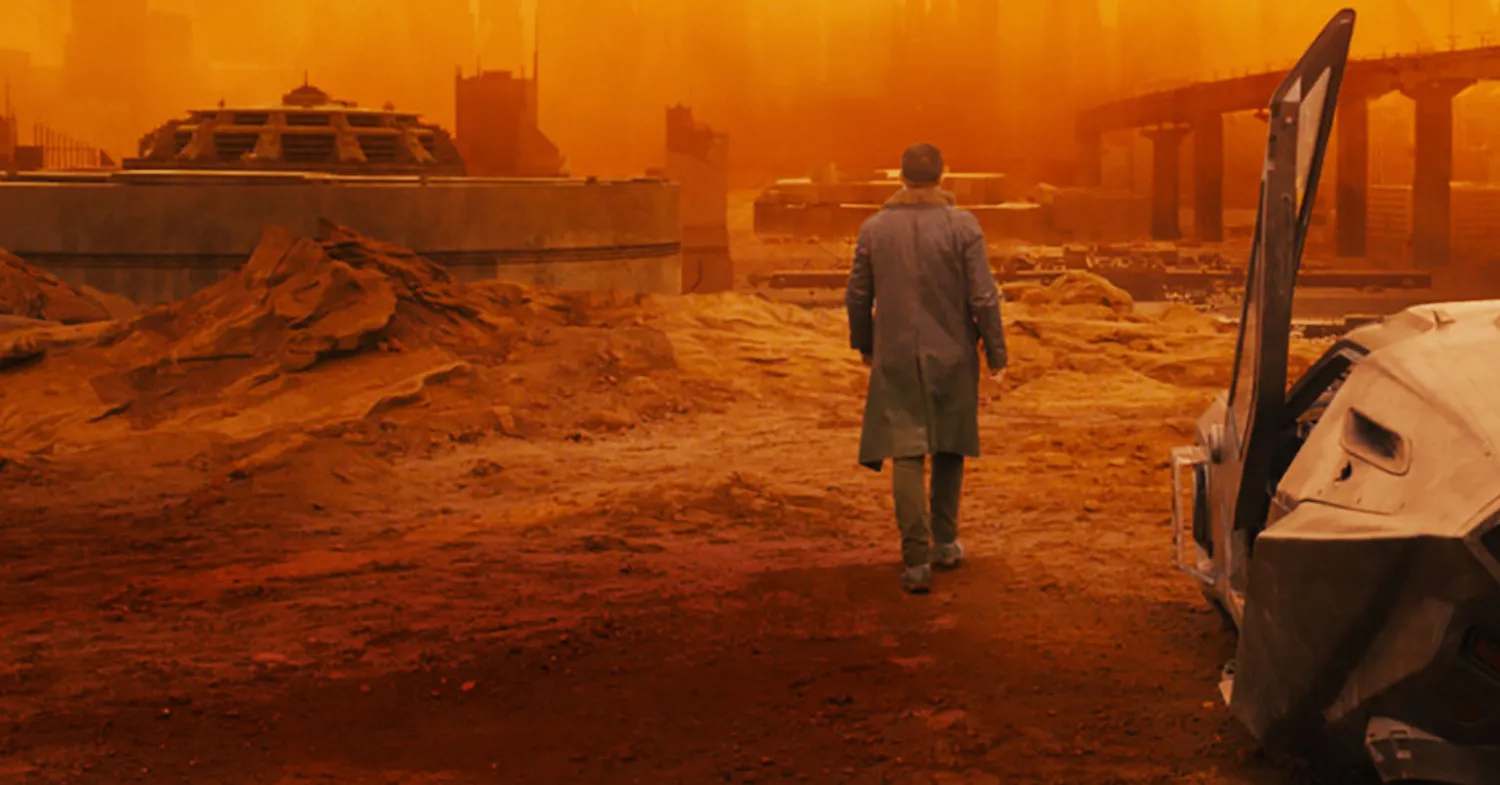Blade Runner 2049 tries to operate in two separate modes, as a humane and personal drama, and a science fiction epic. While these two styles work in their own separate veins, they cross to make a visually stunning, emotionally hollow movie. Denis Villeneuve directs himself into a corner with this one.

Denis Villeneuve’s filmography is a testament to his mastery of two distinct cinematic modes: the deeply personal and the visually breathtaking. In films like Arrival, he weaves existential narratives with profound human connection, while projects like Dune showcase his ability to translate vast science fiction landscapes into stunning visuals. Blade Runner 2049, however, attempts to blend both approaches, ultimately resulting in a film as visually arresting as it is narratively underwhelming.
Villeneuve’s signature visual style is on full display here. The movie paints a neo-noir Los Angeles bathed in neon hues and shrouded in perpetual fog. From the sprawling cityscape to the desolate landscapes beyond, each frame is scientifically crafted, offering a feast for the eyes. However, the breathtaking visuals often overshadow the emotional core of Blade Runner 2049. The narrative, burdened by its own weight, struggles to capture your intellect and emotion despite its ambitious thematic exploration.
The movie’s central conflict hinges on Ryan Gosling‘s portrayal of K, a blade runner tasked with hunting down and retiring Replicants – bioengineered beings indistinguishable from humans. While Gosling delivers a competent performance, his signature stoicism often hinders the exploration of K’s inner world, leaving him an enigmatic figure rather than a relatable protagonist – a cypher for Villeneuve’s world instead of an interesting character altogether. This lack of emotional connection extends to the film’s other characters, with exceptions for the charismatic presence of Harrison Ford returning as Rick Deckard and a captivating performance by Ana de Armas.
The film’s exploration of themes related to memory, identity, and the nature of humanity is undeniably thought-provoking. However, these concepts remain largely confined to the realm of abstract contemplation, failing to translate into a deeply engaging viewing experience. The pacing, mirroring the film’s desolate landscapes, feels ponderous at times, further hindering its emotional impact.
This is Denis Villeneuve’s Interstellar, with both films sharing a tendency towards grand visuals coupled with a detached emotional center. While Dune embraced this visual starkness, Blade Runner 2049 attempts to retain a sentimental core, ultimately resulting in a dissonance between the two approaches that just doesn’t work for me.
Despite its shortcomings, Blade Runner 2049 remains a visually stunning, epic experience. Unfortunately, its narrative struggles to rise above the level of a beautifully rendered but ultimately hollow spectacle. The movie stands as a reminder of Denis Villeneuve’s visual mastery and hold on the science fiction genre, yet falls short of achieving the emotional resonance that defines his best work. Maybe it’ll click with me further down the line as I give it more and more chances. In the meantime, Blade Runner 2049 offers a visually captivating experience, albeit one that may leave you emotionally adrift in its vast, beautiful desert.
Score: 5/10
Blade Runner 2049 (2017)
- Cast: Ryan Gosling, Harrison Ford, Sylvia Hoeks, Ana de Armas, Mackenzie Davis, Jared Leto, Robin Wright, Dave Bautista, David Dastmalchian
- Director: Denis Villeneuve
- Genre: Drama, Science Fiction
- Runtime: 164 minutes
- Rated: R
- Release Date: October 6, 2017
Read More Reviews for Denis Villeneuve Movies
Cinephile Corner has reviewed the following Denis Villeneuve movies: